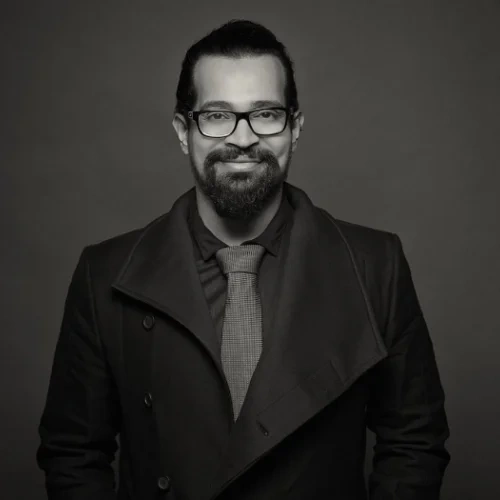Does the opposite person always ask you to stop to let him talk? Do you often get into incessant conversation not letting the other person speak? How many times has it happened that you interrupted someone to just dive into the discussion?
Well, if the above are true with you, you are not a good listener. Also, to be a good speaker, you really need to be a good listener. Now, there is a difference between being a listener, a good listener, and a mindful listener.
Are you a mindful listener?
If you are just hearing someone, without paying any attention, that’s called listening. It’s like “in one ear and out the other”. If you are a good listener, then you pay attention to what someone is saying. Finally, if there is full attention which you pay while hearing someone out, that’s called mindfulness listening.
The latter comes with immense benefits. Here, you take an active participation in the entire conversation. When a reference is made to the conversation, you can instantly remember it without an effort.
Now, why should you put such an effort in mindful listening? Well, it’s because such a practice not just improves your communication skills, but also soothes your relations. In any personal or professional zone, you need to be a mindful listener to show empathy towards the relation and the person involved.
Mindful listening needs practice and you can learn that to groom yourself for your whole life.

Let’s first understand what mindful listening is
Mindfulness is a state of awareness. It’s a state where you stay conscious of your surroundings. Also, in mindful listening, you listen with total acceptance (which means you need to stop connecting to your internal chatter) and not judge yourself or anyone or anything. You let go of any negative feelings while giving a patient ear to the other person.
Consider while you are listening to a video or music, do you pay complete attention? Do you process the lyrics while you hear? In today’s world, it is difficult to shut out the distractions. Mindful listening encourages you to let go of any negative thoughts and judgements and be totally present now.
The interesting U theory by Otto Scharmer
The learned American academician and a senior lecturer at MIT Sloan School of Management brought forth an interesting theory for mindful listening. So, what are the most underrated aspects of great leadership? A lot of talks go around in the air for a lot of vision, mission, etc. which drives a greater leader. However, an important attribute of great leadership is listening. There is a difference between hearing and listening. When you let the matter of the content get absorbed inside you, that’s what we call listening where you retain the information.
However, it’s lack of listening or connecting to what is going on in reality that fails many leaders. In fact, in professions like law, professionals get trained to be patient listeners during hearing for even 8 hours at a stretch. As Scharmer mentions, listening is as important for professional lives, as it is for personal lives. So, the professor identified 4 levels of listening.
1. First is, downloading -
It’s kind of listening from habits. Listening to what you already know. So, you are listening by downloading your known facts, beliefs, thoughts and habits. Here your mind is shut from any new and external information. Here the outcome is you reconfirm your known opinions and judgements.
2. Second is, factual listening -
This is listening from outside. Here you listen with an open mind. The outcome here is you see differences in what you hear and what you expect. Here you get to know the contradictions to your set belief or theory. But this is the seed of innovation because it helps you evolve.
3. Third is empathic listening.
Here you listen to the information from the eyes of another person. This let’s connect in deeper ways where you listen from the place where the other person is. It lets you step in to connect with the experience of the other person with an open heart, Open Will and Open Mind, hence helping you establish an emotional connection.
4. The last is generative listening.
Here it’s an open world for you where you can allow any information to flow in and out in your full capacity. This lets you connect with the full source of who you are and who you want to be. Here your identity starts transforming and moving towards who you really are and you want to be.
Like the MIT professor says, it’s a great coach who listens to you not just from the place of who you are now but also who can become in future. So, a coach is only a successful one when he can make you connect your present self to your future self.
How can mindful listening be helpful for you?
Here are the benefits which will help you grow forever and be a strong person from inside.
- You learn to accept others' thoughts without having to control them.
- Your relationships get healthy
- You stay more aware of other’s feelings
- You stay more in control of your emotions
- Learn to avoid reacting or jumping into conclusions
- Dodge making complaints or suffer from negative mindset
- Improve relations with friends and family
- Develop healthy relations with coworkers
- Learn to be able to better connect to others
And there are multiple other benefits for your professional and personal development.
Let's explore 8 ways to enhance your mindful listening skills.
1.Give time to yourself
This is something we often miss out on. We tend to spend the day in a hurry with personal and professional engagements but skip spending time with the person who is most important to us. We ourselves are the most important individuals to us. Relax and spend time with yourself, contemplate well, breathe, and get ready for the conversation.
2.Meditate
Nothing can beat meditation in removing clutter from your mind. It’s only when you declutter your mind, you can make space for healthy listening and processing of others' conversations. Spend some time every day meditating just with yourself; the more you do it, the better it gets every day.
3.Declutter your space
Alongside decluttering your inner being, it’s important to cleanse your physical space as well. Keep your bed and room clean and tidy. Arrange and organise your workspace well.
4.Listen to yourself
While in a conversation, listen to how your inner being is reacting. If it’s trying to get into a conflict or make you feel anxious, it can get you into a mind block. You might feel resistance towards embracing ideas and thoughts. So, while you listen, listen carefully. Pay complete heed to the other person and don’t let your self-sabotaging thoughts distract you.
5.Breathe well
Sounds funny right? You might be thinking you are breathing all the time, so what’s the big deal here. Well, when we say breathe well during conversations, we mean that you become aware of your breathing. Take deep inhalations and exhalations, especially if you find emotions blocking your acceptance.
6.Distractions are fine, but be back
You will often hear people say that “do not get distracted while talking.” Well, distractions are natural and common. You can’t limit these forcefully. Let distracting thoughts flow naturally but acknowledge that and bring your mind back to the conversation. Recognise and accept the fact that your mind can wander. The moment you realise that, bring your mind back to the present moment.
7.Talk only when you want
Reaching a point in life where you can get onto a natural discussion and mindful listening at any point under any situation is called true fulfilment. But till you grow to that level, try picking up conversations only when your mind and heart are in alignment. Pick a time to talk only when you are willing to and not under a compulsion.
8.Listen to understand and not reply
This is the biggest learning of humankind. Majority of us listen to jump into conclusions or respond. How many of us truly listen to understand the other person? This is what we call as mindful listening where you listen like a blank canvas, ready to accept what the opposite person has to say. Then, you can process it and take your decision at your free will.
So, how does it feel as we reach the end of the understanding of what mindful listening is and what are the ways to improve on it? Doing this by yourself might be a great idea but having a coach by side will make your journey even more worthwhile. So, enrich your experience by reaching out to a mindfulness mentor or a life coach like Dr Paras, who is specialised in this area of life. He has his expertise honed over the years by consulting numerous people like you and through his spiritual gifts, alongside immense knowledge he has gained with studies.






Comments